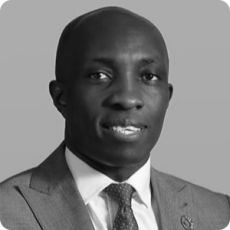Today the world marks International Youth Day which focuses on and celebrates the efforts of the youth to improve societies around the globe. With this occasion, we present you the second part of the Expert Opinions series which comprises the experiences of several international professionals who have worked in the youth global development sector. Take a break for inspiration.
How important is global youth work for international development?

“Investing in young people can generate significant social and economic returns, making it an effective use of technical and financial development assistance. Investment should be directed to areas that can improve the lives of young people, their communities, and their countries. Changes stemming from interventions to improve the lives of young people in one area can ripple out from the local communities to the global one. Motivated young people with an interest to work in international development is a building block toward obtaining more robust outcomes for individuals, families, and communities in pre and post-crisis settings. The young people’s energy and enthusiasm can be used as a vehicle for change across the globe within established institutions. Often people within the emergency settings are tired, physically and mentally, thus injecting new blood to the drained body of the organizations, will enable them to bridge emergency to development easier than in previous eras. Because the youth force is enjoying its fresh mind and different thinking techniques and procedures, this will allow them to think and see outside of the box easier than those who stopped in the middle of the existing crisis. The young people are bringing a portfolio that embraces new ideas, mechanisms, and solutions on the board. When we have those equipped young people injected into the body of the institutions, it means we have concreted the ways for those institutions to adopt a set of new methods, ideas, and practices to respond to new and the existing crisis in a strong way.”

“According to the United Nations, 1.2 billion people in the world were youth (young people aged 15-24) in 2019, with this number projected to grow to 1.3 billion by 2030. Furthermore, although many countries in Asia and Africa have populations consisting of up to 50% youth, international development programs often fail to address the wide-ranging needs of young people. Investment into youth employment, education, and participation programs and initiatives is absolutely vital to leverage this “demographic dividend” and utilise the skills, ideas, and passion of young people to address key global issues such as climate change, poverty, and gender inequality.”

“With 70 percent of Africa’s population under the age of 30, the continent has the largest youth population that presents immense potential for growth. Moreover, it depends on how we look at the large youth population; is it a glass half full or half empty. We should not look at the number of young people as a challenge or a problem to be managed. With the largest youth population in history, the continent has the greatest opportunity in history, because, with each young person, we have new ideas and new energy. The fact is that a large number of young people means that Africa has immense potential and unusual ideas coming from different backgrounds and cultures.”
What are the biggest challenges for youth workers in international development?

“The most common challenges which are known to affect young people’s ability to participate in adult decision-making include cultural norms, poverty, disability, and gender. Each one of those can have a negative impact on youth workers in the international development sector. The second main challenge can be categorized under institutional limitations, including but not limited to; poor management, lack of skills and training, time and budget, staff burnout, and weak adult training. Often the organizational mindset creates barriers to truly embrace the concept of active youth force participation. For instance, many organizations spend a huge amount of money to recruit youth, but in practice, there is disparity between words and actions, meaning the organization’s leader doesn’t value the youths’ viewpoints. When it comes down to it, the organization management team/s are generally managing the programmes and projects by themselves and therefore have the final say in how much authority and responsibility is delegated to young workers. Additional barriers, which hampers young people to work in international development can be summarized as follows; lack of skills and adequate training in the areas of leadership, communication, social awareness, and psychological/social development; insufficient training in committee-related roles and responsibilities; and insufficient training in budgetary issues. Moreover, in some institutions, staff do not receive sufficient training in youth involvement. Some adults are not aware of the importance of youth participation, and do not have enough capacity to deliver it correctly.”

“The biggest challenge for youth workers in international development is having a platform to voice their opinions. Many youth working in the development sector are at the start of their careers and therefore often lack the confidence, support, and opportunities to share their views and contribute to key decision-making. This is exacerbated for young women and youth of colour who are often under-represented in roles at all levels throughout the development sector. Many youth also lack mentors and sponsors who can advocate on their behalf to help share their views and increase their influence. Additionally, many organisations do not recognise the value and importance of investing in youth, which can make it difficult for youth workers to find funding and support to implement high-quality programs directed at young people.

“Often, young people are excluded on the pretext of lacking experience. But youth is not inadequate. Youth have fresh ideas, energy, and creativity. Youth is powerful beyond measure. Young people must be at the center of development. Across the continent, there are great examples of achievements of exemplary young inventors and innovators that represent the very best of what happens when we partner and invest in young people.
What needs to be changed/improved in the youth sector in international development?

“As we all agreed upon, the young people play a central role in development. In order to create an enabling environment for the improvement of the youth domain, all relevant stakeholders must be engaged and contribute. The young women and young men must continue to become more engaged in transforming the lives of their communities and their countries. Thus, the international aid community can foster enabling environments by continuing to fund CSO and NGO work in developing countries; working with young people so that their voices are heard; ensuring that young people’s right to participate remains on the agenda; and providing technical assistance to governments to support spaces for youth participation. Arming with the above point, the CSOs and other actors must pave the way for more active engagement of youth workers within their spaces. Those institutions should amend their old-fashioned model of their management by opening transparent avenues for youth workers. Finally, educational stakeholders across the world should equip the youth force with the market demanded skills, knowledge, and expertise to prepare them for their work in the international development areas.

“There is a lack of opportunities for young people to participate in decisions that involve them within the international development sector. Youth need to be given meaningful opportunities to have their voices heard and to contribute to key decision-making at all levels within the sector (from making decisions related to programs, to organisational governance). International organisations should provide more opportunities for youth, especially those from diverse backgrounds to participate on Boards and in Senior Management roles and appreciate the unique perspectives that young people can bring to solving both programmatic and organisational challenges.

“Governments and development partners in Africa must foster an enabling environment for youth innovation and participation in development – meet their innovation needs, promote and support required legislation and policies, mainstream youth in all relevant aspects of development, and work with them as partners and not mere beneficiaries. At the same time, young people should be equipped with the education, innovation skills, confidence to innovate and be competitive globally – to drive development and solve some of the challenges that we see in Africa and in the world. As UNDP former head, Hellen Clark remarked, and it is true, with youth comes energy, vibrancy, and optimism. Young people are only asking for a supportive environment and opportunity. Yet a failure to invest in opportunities for youth can quickly lead to the opposite –to alienation and to energy turned in destructive rather than constructive directions. Make no mistake, young people are key to the success of development plans in Africa – the success is contingent on how youth are engaged. It is clear that young people’s social, economic, and political rights cannot be met by discrete youth empowerment strategies. Youth mainstreamed policies complement the focus of discrete youth policies managed by the youth. This gives forth a proactive youth sector, with effective, results-based management and monitoring and evaluation mechanisms that influence planning.
Check out more than 120 job opportunities in the youth sector here.

